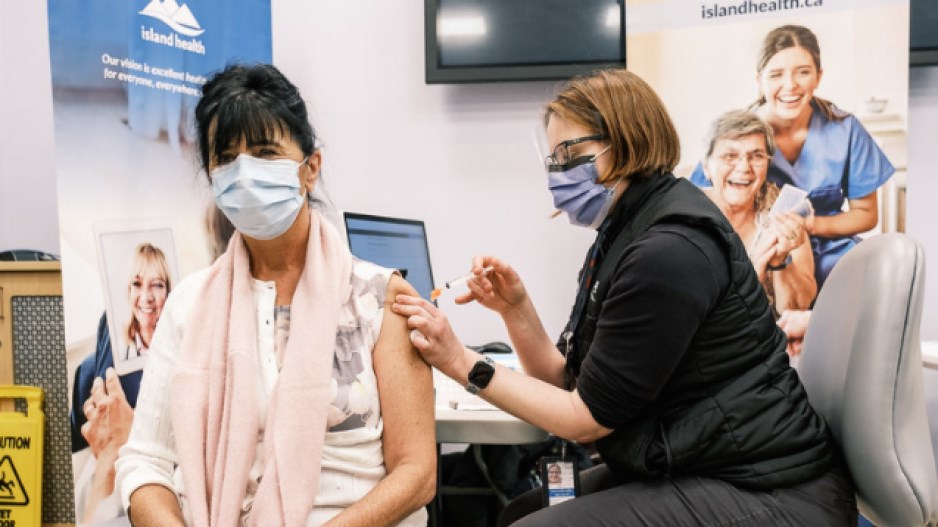All four million doses of the joint Pfizer Inc. and BioNTech SE vaccine previously guaranteed to Canada by the end of March will officially arrive on time despite ongoing delivery and production delays.
Prime Minister Justin Trudeau said Friday (Feb.12) he had just received an updated delivery schedule from Pfizer CEO Albert Bourla confirming the doses will be in the country on schedule.
Pfizer began revamping its production facilities in Belgium to expand its manufacturing capacity last month, leading to ongoing delays to weekly deliveries to Canada.
No Pfizer shipments arrived in the country the last week of January, and Canada is only receiving 82% of the previously expected deliveries for the weeks of Feb. 1 and Feb. 8.
Health Canada signed off earlier this week on relabelling the Pfizer vaccine, allowing immunizers to begin extracting six doses from each vial using specialized syringes rather than the previously agreed-upon five doses.
Now that Canadian health workers can extract one extra dose from each vial, federal officials confirmed Thursday Pfizer is due to deliver 404,000 doses next week, followed by 475,000 doses the last week of February and 444,000 doses weekly for the first two weeks of March.
Maj.-Gen. Dany Fortin, the vice-president of logistics and operations at the Public Health Agency of Canada (PHAC), did not have a confirmed delivery schedule for Pfizer vaccine doses for the final three weeks of March as of Thursday.
PHAC’s website has not been updated with the recently confirmed shipment schedule as of Friday morning.
Trudeau said governments in the provinces and territories would soon receive the updated shipment schedules.
Federal officials had repeatedly said they’ve received assurances from the two manufacturers that all of the previously guaranteed doses — four million from Pfizer and two million from Moderna Inc. — will be delivered by the end of March.
Moderna has not yet confirmed its delivery schedule for the final weeks of March.
After that, the two manufacturers had been contracted to deliver a combined total of 20 million doses by the end of June, with 10.8 million doses coming from Pfizer.
But Trudeau revealed Friday the federal government also just ordered an additional four million Moderna doses, set to arrive “over the summer.”
His comments seem to indicate those Moderna doses will be arriving in the third quarter — not the second quarter — of 2021.
However, Minister of Public Services and Procurement Anita Anand said later in the day that 23 million doses from the two manufacturers are now due to arrive by the end of the second quarter.
Meanwhile, the prime minister also confirmed new border measures aimed at slowing the spread of COVID-19 variants will go into effect Feb. 22.
International travellers who fly into the country will be required to take a PCR (polymerase chain reaction) test at the airport to determine if they have COVID-19.
Those travellers will then be required to wait at an approved hotel for up to three days at their own expense — $2,000 — as they await test results.
Those who test negative will be able to quarantine at home, while those international travellers who test positive will be sent to a designated government facility to quarantine.
“It's not a punitive measure to keep people in quarantine for three days while they get the result. It's just so that we can get a negative result off of that test,” the prime minister said.
And beginning Friday, travellers arriving at land borders will need to show proof of a negative PCR test within three days.
From there, they will be required to quarantine at home.
“Anyone who shows up at a border crossing without an adequate quarantine plan already is directed to quarantine facilities approved by PHAC so that they can do it safely,” Trudeau said.
“Every decision we're taking is based on the best possible evidence and will continue to be as we do everything we can to protect Canadians from the threats of these new variants.”



